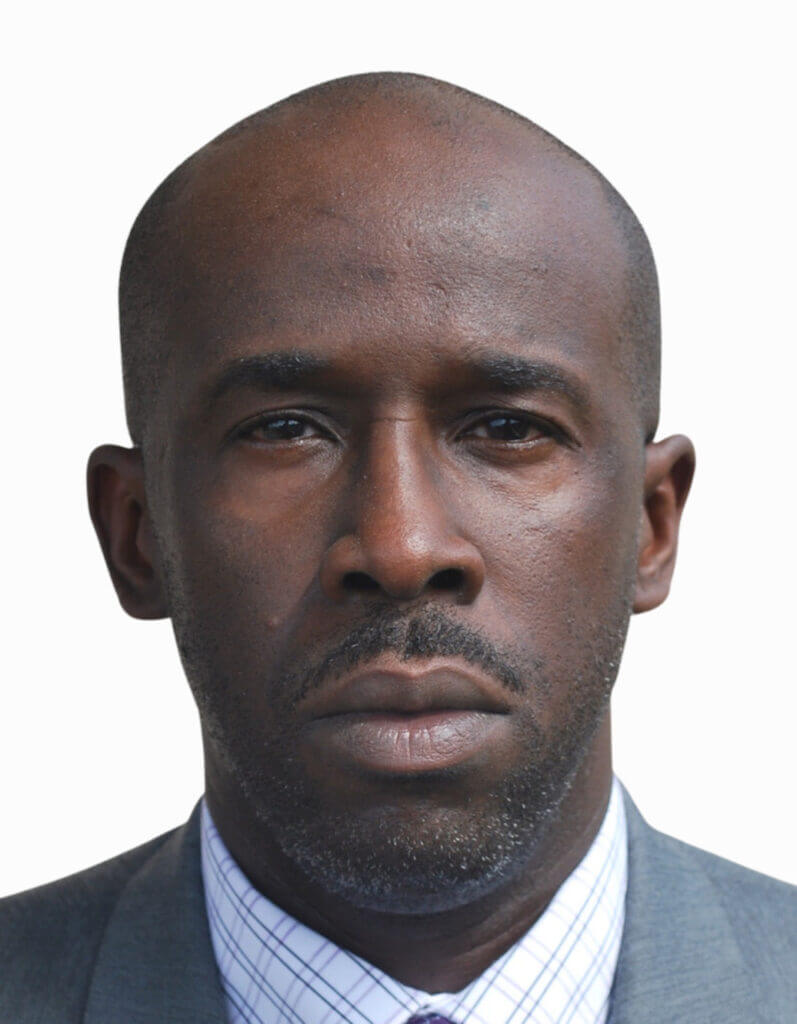Niel Harper, Technology Award

Chief Information Security Officer
Business Information Systems, 1995
The child of a career public servant and diplomat, Niel Harper spent much of his life moving from place to place. Originally from Barbados, he came to Ottawa in 1992 and enrolled in the College’s Business Information Systems program. Following graduation, Harper returned to Barbados where he was part of a team at the forefront of introducing the Internet to the country. After a few years of working in information systems across several industries, Harper took on a new role at AT&T Wireless as Technical Operations Manager, leading the team that deployed the first 2nd generation cellular network in Barbados.
After a short time as a Manager, Internal & ICT Audit at Telem Group in the Netherlands Antilles, Harper again returned to Barbados to work for CIBC, eventually landing himself in the role of Head of Network and Security Engineering. At CIBC, Harper oversaw comprehensive upgrades to the bank’s network and security platforms across 18 countries. This included leading the team that reverse engineered existing technologies to process credit card transactions, saving CIBC roughly $3 million.
In 2012, Harper left the banking world to pursue his true passion: digital rights advocacy. In the role of Director of Next Generation Leaders at the Internet Society — a non-profit founded by early Internet pioneers such as Vint Cerf, Bob Kahn, and John Postel, and whose goals are to develop an open, accessible, secure, and trustworthy Internet for everyone — Harper’s role was to identify and train the next generation of Internet leaders. He was responsible for developing and delivering an award-winning training program that had a reach of approximately 75,000 people in more than 100 countries.
In 2019, Harper joined the United Nations Office for Project Services (UNOPS) as Chief Information Security Officer and was responsible for building out their cybersecurity, technology risk management, and privacy programs in support of more than 1,500 infrastructure, project management, and procurement projects in roughly 120 developing countries. He also served on the United Nations Information Security Special Interest Group during his tenure, supporting the development of information security best practices across more than 30 agencies in the UN system.
Harper has also held leadership and advisory roles at AT&T, Bemol, Bermuda Commercial Bank, Canonical, Deloitte, and the European Commission.
The hands-on learning environment of College is what set Harper up for success in his early career. Lab work combined with theory ensured Harper was equipped with the necessary knowledge to excel in the telecommunications field. He credits his workforce readiness to his time spent working on technology systems in the College’s labs, noting how the practical skills acquired contributed to his early success.
He also remarked on how the professional connections made throughout the program ensured an easy transition into the work environment post-grad. College was the launch pad for Harper to explore his passions and determine his future pursuits — his time at College helped him foster his passion for telecommunications and sparked a lifelong career of improving people’s lives through Internet and ICT services.
Through his work as an advocate and executive, Harper has played an integral role in accelerating the information revolution in emerging economies. People in the technology sector remark first and foremost on Harper’s passion; he feels strongly about the importance of supporting developing nations in taking advantage of technology to improve citizens’ lives.
Today, Harper is focused on transitioning his career toward advisory and corporate governance roles and focusing on supporting organizations in improving cyber risk management. He assists countries in reducing the impacts of cyber risks, especially within critical national infrastructure (CNI). Harper believes that a key element of a country’s health and wellness is securing its CNI against bad actors.
Throughout his career, Harper has worked to create open, accessible, trusted, and secure on-line platforms that enable or empower people to improve their lives. He is deeply committed to digital trust and ensuring that individuals and organizations consistently benefit from safety, privacy, security, reliability, and ethics when using on-line platforms. He has spent the last 20 years advising global organizations in the areas of corporate governance, cybersecurity management, data privacy, digital transformation, risk management, and digital policy.
Harper is currently a Chief Information Security Officer and an Expert in Cybersecurity, Data Policy and Risk & Resilience at the World Economic Forum (WEF). He also serves on the Cyber Risk and Corporate Governance Working Group at WEF and on the Professional Standards Working Group of the UK Cyber Security Council.